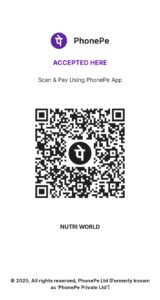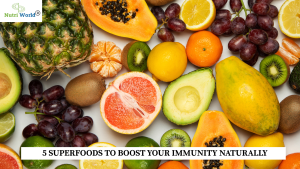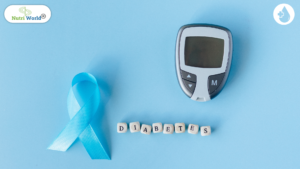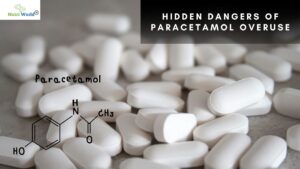The Certificate Course in Basic Sports Nutrition from Nutri World offers a complete curriculum for both beginners and advanced learners. It teaches key sports nutrition concepts like macronutrient balance, hydration, and ways to enhance performance. The basic level covers foundational knowledge, while the advanced level explores specialized topics like nutritional periodization and meal planning for athletes. Through interactive lessons and practical exercises, students acquire essential skills to help improve athletes’ performance and health.
Join our certification course and learn how to design effective diet plans for athletes and active individuals.
Advantages
- Learn how to optimize nutrition for better strength, endurance, and recovery in athletes.
- Open doors to jobs in gyms, sports academies, and fitness centers as a certified sports nutrition advisor.
- Gain skills to design customized meal plans for athletes, fitness enthusiasts, and active individuals.
- Learn evidence-based nutrition strategies to improve energy levels and prevent injuries.
- Get the knowledge to consult athletes, personal trainers, and sports teams on diet optimization.
- Apply sports nutrition principles to your workout routines for better results.
- A great stepping stone for higher studies in sports nutrition, dietetics, and related fields.
- Start your own consulting services for athletes, fitness influencers, or clients seeking performance-based diets.
- Gain specialized knowledge in a growing field where demand for expert advice is increasing.
- Help athletes and active individuals achieve their fitness goals through effective nutrition planning.
Course Modules
- Module 1: Introduction about sports & exercise nutrition
- Module 2: Carbohydrate in exercise & sports
- Module 3: Protein in exercise & sports
- Module 4: Fat in exercise & sports
- Module 5: Importance of micro-nutrients in exercise & sports
- Module 6: Hydration and strategies of hydrations
🔹Additional Skills You’ll Develop
📌 Hydration & Electrolyte Management: Prevent dehydration and muscle cramps in athletes.
📌 Nutrient Timing Strategies: Plan meals around training for better endurance and recovery.
📌 Supplementation Knowledge: Learn about safe and effective sports supplements.
📌 Injury Recovery Nutrition: Use diet to support faster healing.
📌 Metabolic Rate Assessment: Personalize diets based on energy needs.
📌 Sports-Specific Diet Planning: Adapt nutrition for different types of sports.
📌 Doping & Anti-Doping Awareness: Follow nutrition ethics and regulations.
📌 Performance Monitoring & Adjustments: Track progress and adjust meal plans.
Step-1
Step-2
Payment Details
A/C No- 0598202100000654
IFSC Code-PUNB0059820
Name - Nutri World
Branch- Punjab National,Kakdwip
Bank - Punjab National Bank
UPI ID: 9647372176-1@okbizaxis
Facebook Link: https://www.facebook.com/20nutriworld
Google Pay :9647372176
Phone Pay: 9647372176

Important Note
AfterPayment take a Screen shot and send us so we can validate your registation, without payment proof your registation will not be activated.
FAQ
1. What is Sports Nutrition and why is it important?
Sports nutrition is the study and practice of diet and nutrition to improve athletic performance and recovery. It is essential for fueling the body, optimizing endurance, building muscle, and preventing injuries. Proper nutrition helps athletes maintain energy levels, enhance focus, and support overall health.
2. What are the key macronutrients needed for athletes?
Athletes require a balanced intake of:
- Carbohydrates: Primary energy source for workouts (e.g., whole grains, fruits, vegetables).
- Proteins: Essential for muscle repair and growth (e.g., lean meats, eggs, legumes, dairy).
- Fats: Provide long-term energy and support cell function (e.g., nuts, seeds, avocados, olive oil).
3. How much water should an athlete drink daily?
Hydration needs vary, but general guidelines suggest:
- Before exercise: 500-600 ml (17-20 oz) 2-3 hours prior.
- During exercise: 200-300 ml (7-10 oz) every 15-20 minutes.
- After exercise: 500-750 ml (16-24 oz) per pound of body weight lost.
4. What should an athlete eat before a workout?
A pre-workout meal should include:
- Carbohydrates for quick energy (e.g., banana, oatmeal, whole wheat toast).
- Moderate protein to prevent muscle breakdown (e.g., Greek yogurt, nuts).
- Limited fats and fiber to avoid digestive discomfort.
5. What is the best post-workout meal for recovery?
A post-workout meal should include:
- Protein (15-25g) for muscle repair (e.g., chicken, fish, eggs, protein shake).
- Carbohydrates for glycogen replenishment (e.g., rice, potatoes, fruits).
- Fluids and electrolytes to rehydrate (e.g., water, coconut water, sports drinks).
6. Do athletes need supplements?
Supplements should only be used if dietary intake is insufficient. Common beneficial supplements include:
- Protein powders (whey, plant-based) for muscle repair.
- Creatine for strength and power.
- Electrolytes for hydration.
- Vitamin D & Omega-3s for overall health.
A dietitian should be consulted before taking any supplements.
7. How important is sleep in sports nutrition?
Sleep is crucial for muscle recovery, hormone regulation, and overall performance. Poor sleep can lead to fatigue, increased injury risk, and impaired metabolism. Athletes should aim for 7-9 hours of sleep per night.



